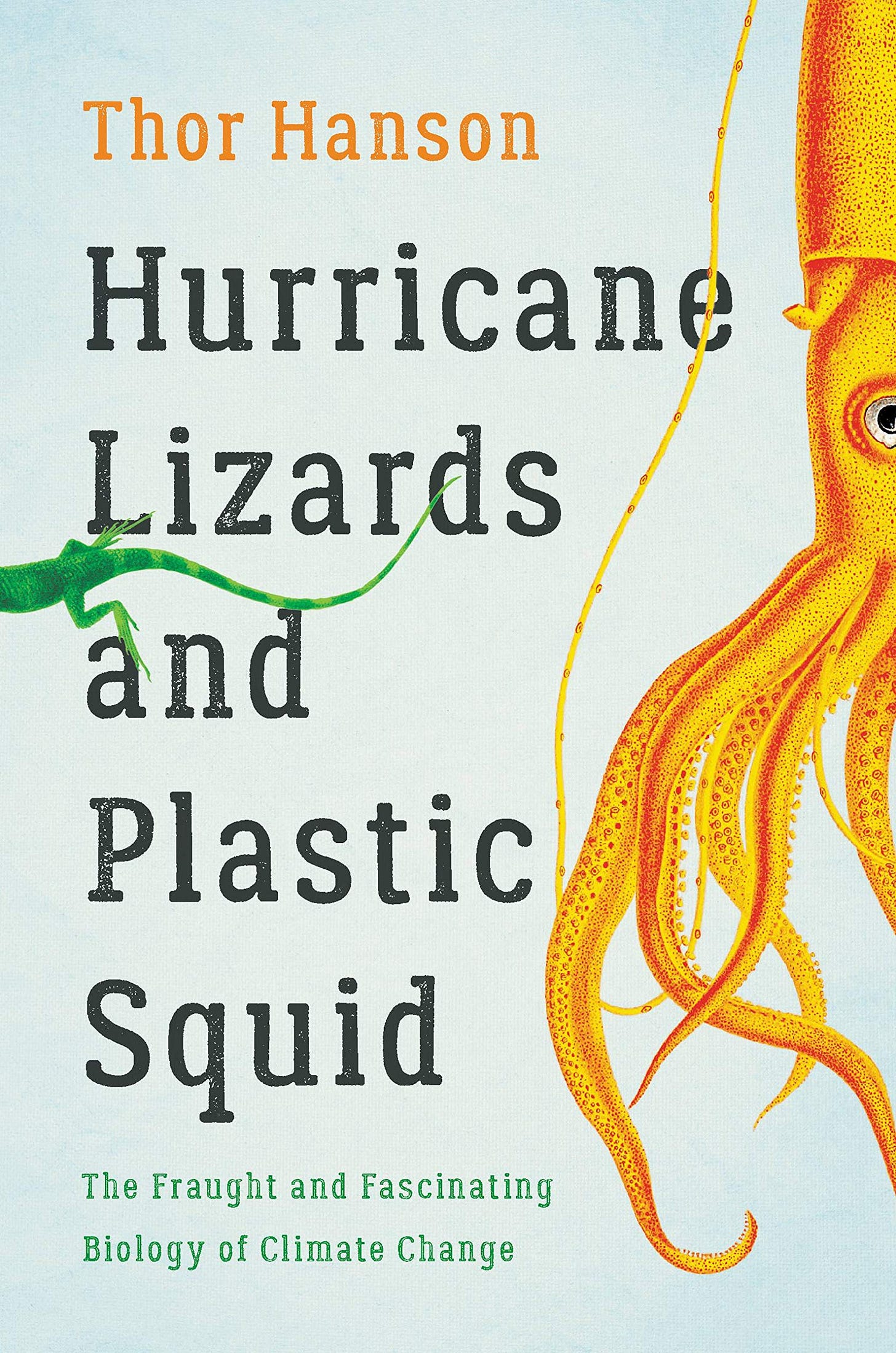I’m lucky to have a wife that thinks of me often…even at the library. While perusing a shelf of “Staff Picks”, she found Hurricane Lizards and Plastic Squid by Thor Hanson. She brought it home, thinking I might find it interesting. After twenty-two years of marriage, she knows me well.
To be clear, this book is about climate change. But unlike so many other tomes on the topic, this scarcely ascends into the atmosphere. Mercifully, you’ll find no in-depth discussion of greenhouse gas warming potential, climate feedback loops, or the albedo effect.
Instead, Hanson focuses on what climate change means to individual species of plants and animals. The book takes a free-ranging look at how our warming world affects a wide array of wildlife, from fence lizards, to brown pelicans, to sunflower sea stars. The result is a book that brings the often abstract topic of climate change down to terrestrial Earth.
“Warming ocean temperatures and altered currents have moved so many things from lower latitudes toward the poles, in so many places, that marine biologists are calling the trend ‘tropicalization.’”
Hanson deftly explains how life our biosphere evolved and specialized under a relatively stable climate that persisted for roughly the past 12,000 years. Its not surprising, then, that the advent of rapid, modern climate change has consequences for birds, bark beetles, and butterfly fish. As you might imagine, many accounts detail troubling, seemingly disastrous results for species.
But Hanson doesn’t stop at despair. Instead, a significant amount of the book explores the many ways in which wildlife is responding (or might eventually!) Turns out, some organisms could MEAT the challenge, that is Move, Evolve, Adapt, or Take Refuge. Personal gloat here: I just came up with that nifty little acronym, but Hanson is welcome to use it going forward.
“Victoria Peck’s work on the resilience of sea butterflies does not take away from the threats posed by ocean acidification, but it does highlight a point that often gets overlooked when we talk about the climate crisis: nature is not defenseless.”
In explaining complex topics, Hanson uses simple, plain language that is a joy to read. He also skillfully uses transitions to fluidly lead readers by the nose from one subject to another. And I’m a sucker for intriguing titles. This one certainly caught my eye. But I’m definitely not giving away what it means here…you’ll just have to read the book to figure it out for yourself.
Just be warned: you’ll need to get about half way through before you understand. But reading through to the end is definitely worthwhile, especially for Hanson’s compare-and-contrast exercise between our current state and past mass extinction events. Uselessly vague spoiler alert: the past is cause for both hope and concern.
“When it comes to resilience, context matters—a worrying thought in the current crisis, where natural systems are already coping with human stressors that are far more dire than a few bands of hunters with spears.”
I’ll consider my wife’s thoughtful recommendation a favor returned. Some time ago, I recommended she read In Search of the Canary Tree by Lauren Oaks. I found it to be a thoughtful and entertaining book along very similar lines. She really liked it. Thank god I finally cracked the code on something after twenty-two years together…

Subscribe free-of-charge to receive updates delivered directly to your inbox.
As you know, I don’t charge a dime for my priceless thoughts. But if you’re inclined to provide support, here are a few ways to do so:
If you liked this post share it with your friends with a kind word using the button below, or
connect with Noon at the Park on Twitter, Instagram and Facebook, or
Buy yourself something nice on Amazon. Start with this personalized recommendation, but feel free to put whatever you want in your cart and hit “Buy Now”, or…
you can just buy me a beer.
See? You don’t need to buy a subscription to the Washington Post to support quality journalism!




